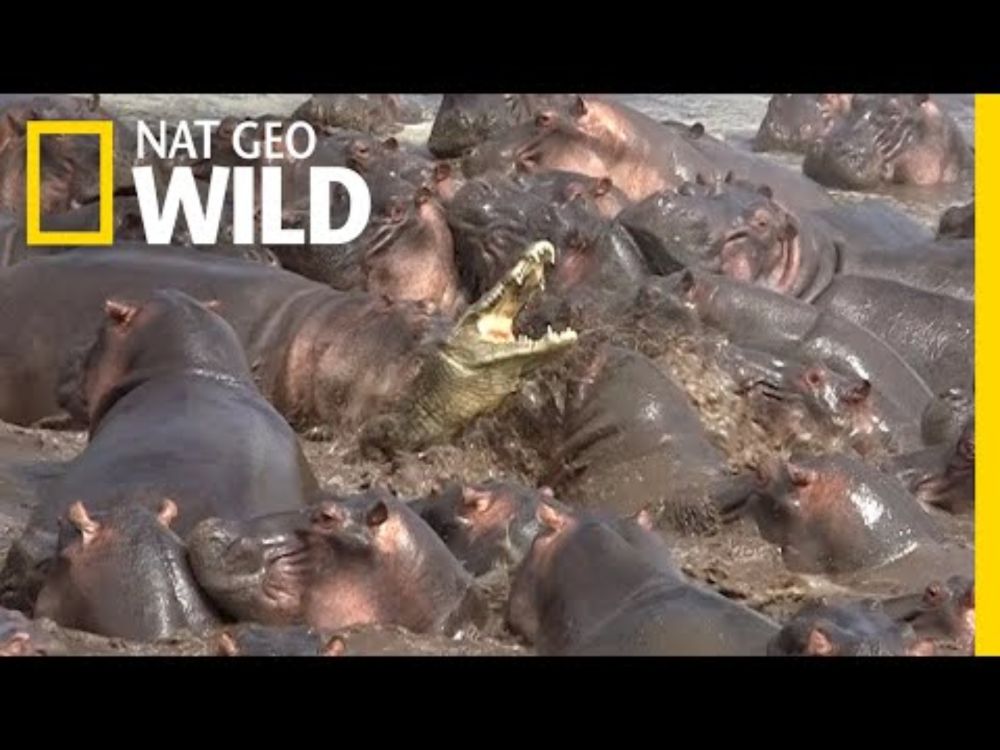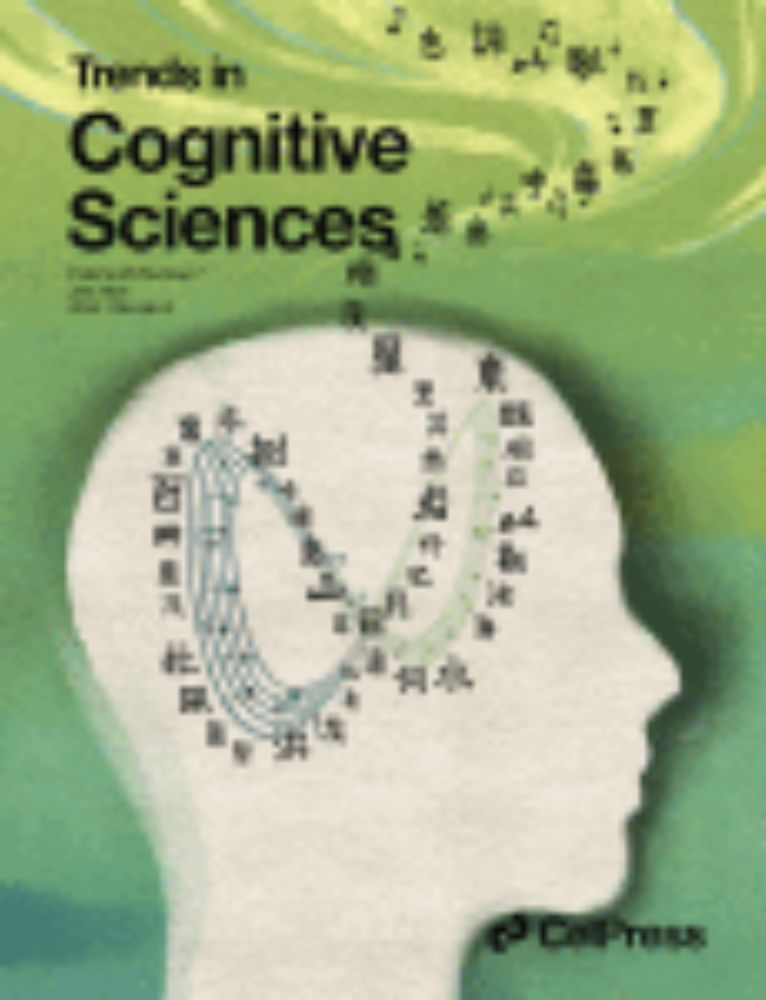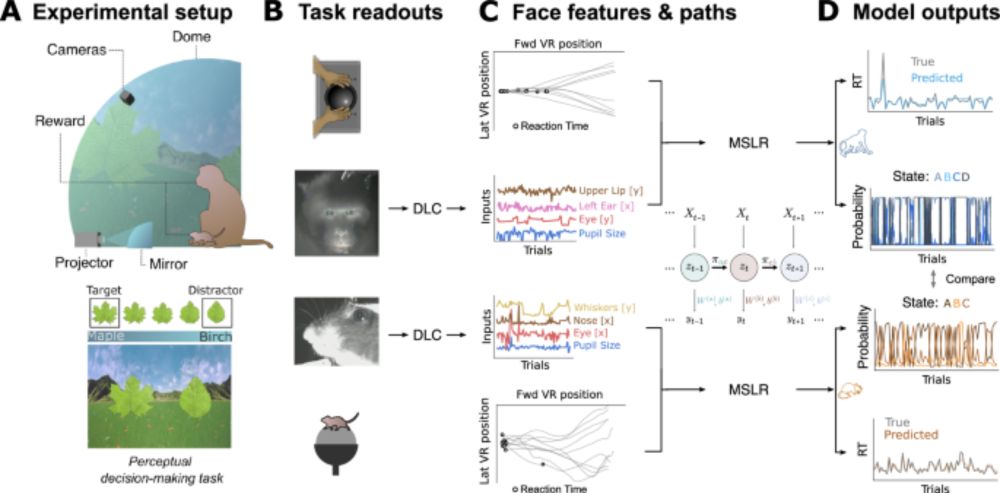Amazing, thanks lots!😊🙏
13.08.2025 09:02 — 👍 1 🔁 0 💬 0 📌 0
Check out @catrinahacker.bsky.social's #CCN2025 poster this afternoon!
We've long worked with spikes. Here we ask: would we have made the same inferences about memory with the signals often recorded in human neurosci (iEEG, LFPs)? The answer surprised me. Not only yes! but with 3-fold *less* data.
13.08.2025 05:50 — 👍 30 🔁 5 💬 3 📌 0
Wow, that's fascinating!! Gotta check that out in our data....
13.08.2025 07:02 — 👍 2 🔁 0 💬 1 📌 0
Also there can be a lot of joy in the not knowing - which usually takes up the majority of the time after all. 😅
08.08.2025 06:42 — 👍 0 🔁 0 💬 0 📌 0
Aaaand we have our final line-up for ESI-SyNC 2025! Check it out! :)
Join us for two exciting days of figuring out what altered states of consciousness do to your brain!
More info:
esi-frankfurt.de/newevent/
Go register (100 Euro, free for junior researchers):
survey.academiccloud.de/index.php/18...
06.08.2025 11:59 — 👍 5 🔁 1 💬 0 📌 0
YouTube video by Nat Geo Animals
Watch What Happens When a Crocodile Walks Into a Herd of Hippos | Nat Geo Wild
Hippo pool? ;) (Imagine the crocodile as reviewer 2)
www.youtube.com/watch?v=fLZH...
04.08.2025 21:37 — 👍 2 🔁 0 💬 0 📌 0
I have the pleasure of speaking at ESI-SyNC this year about the neurophenomenology of breathwork and DMT 🧠✨
Do come if you can!
04.08.2025 08:09 — 👍 4 🔁 1 💬 0 📌 0
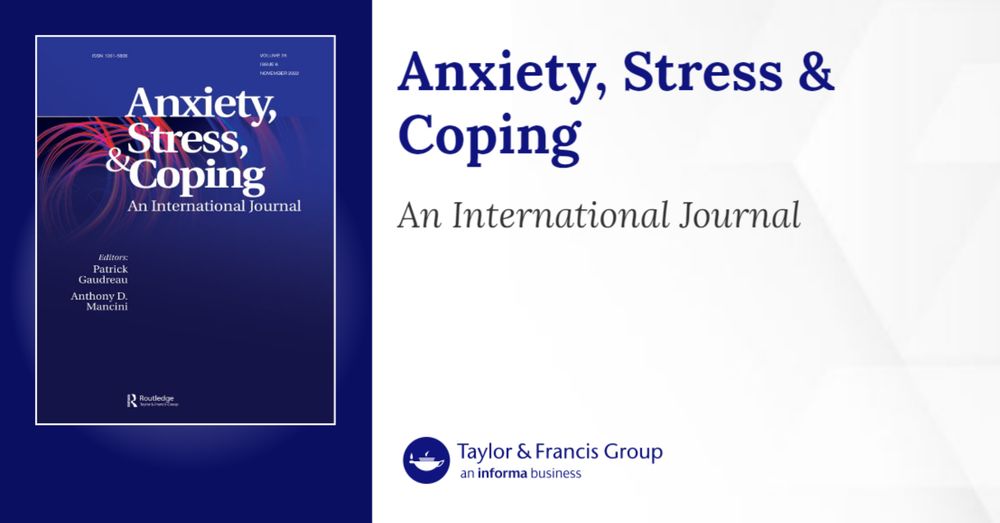
No evidence for a link between mental health symptoms and pain thresholds
Previous studies have suggested associations between pain perception and psychological factors such as mood, distress, fatigue, and quality of life. However, these factors and their relationship to...
Does sensitivity to acute pain correlate with mental health?
In our new paper led by @rebeccaboe.bsky.social & @francescafardo.bsky.social we analyzed thermal pain thresholds in 565 adults and found no link to mental health symptoms.
👉 doi.org/10.1080/1061...
04.08.2025 07:20 — 👍 52 🔁 9 💬 4 📌 0
Delighted to be back to Ernst Strüngmann Institute to learn and present at what should be an amazing meeting on psychedelics and consciousness
www.esi-frankfurt.de/newevent/
02.08.2025 17:15 — 👍 9 🔁 1 💬 0 📌 0
Upcoming Conference | Ernst Strüngmann Institute (ESI) for Neuroscience
Registration is 100 Euro (free for PhDs & postdocs).
Find out more!
esi-frankfurt.de/newevent/
Go register!
survey.academiccloud.de/index.php/18...
@mikaelpalner.bsky.social @torbenott.bsky.social @bita137.bsky.social @marcwittmann.bsky.social @evanlhealey.bsky.social @christimmermann.bsky.social
31.07.2025 16:42 — 👍 5 🔁 0 💬 0 📌 0
What shifts in our brain when our consciousness shifts? On Sept 8-9, we will explore this question at ESI-SyNC 2025 - with exciting talks, posters and discussions on the neural dynamics of altered consciousness, from psychedelics to breathwork, near-death experiences and meditation.
(1/2)
31.07.2025 16:42 — 👍 14 🔁 4 💬 1 📌 3
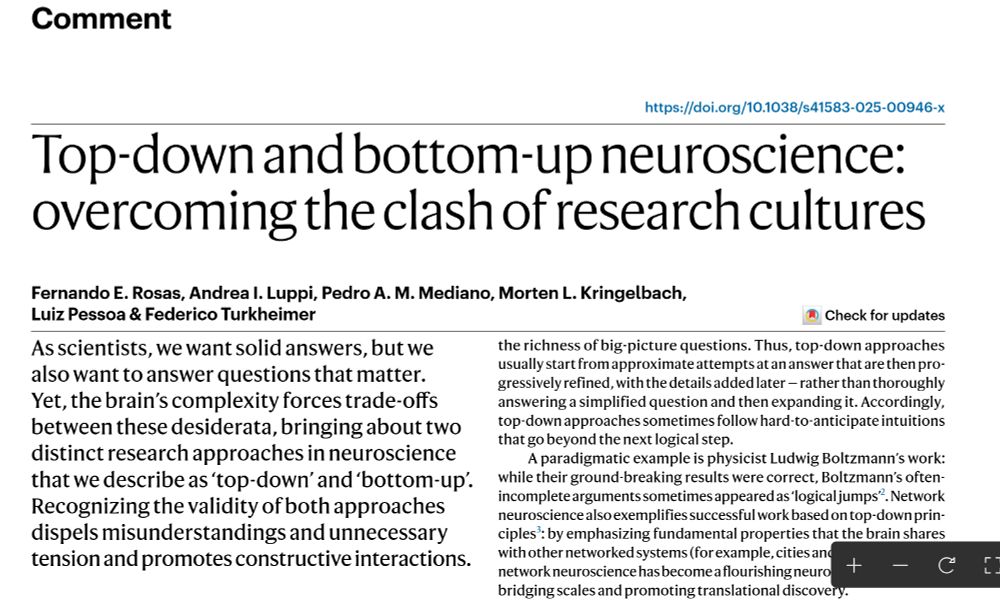
“Top-down and bottom-up neuroscience: overcoming the clash of research cultures”
doi.org/10.1038/s415...
Small contribution in this piece by @frosas.bsky.social and colleagues on how we need both types of research culture in neuroscience.
#neuroskyence
22.07.2025 15:59 — 👍 64 🔁 21 💬 0 📌 1
😂😂
28.06.2025 18:53 — 👍 1 🔁 0 💬 0 📌 0
A study of rhesus macaques in July found that those who communicated more clearly with their facial expressions made better leaders: phys.org/news/2024-07...
Couldn't help but think of how this guy must be a great leader.
11.12.2024 20:54 — 👍 5 🔁 1 💬 0 📌 0
As highlighted by @altmetric.com, #Bluesky keeps trending up, regularly beating #X/Twitter for research sharing, all with just 36M users compared to X's claimed 600M. Imagine achieving that without the spam and toxic mess. Honestly, what are you waiting for?
#ResearchSky #AcademicSky #SocialMedia
19.06.2025 16:09 — 👍 14 🔁 5 💬 0 📌 1
Or in German: 'Studentenfutter' (student feed) 😅
17.06.2025 13:02 — 👍 1 🔁 0 💬 0 📌 0
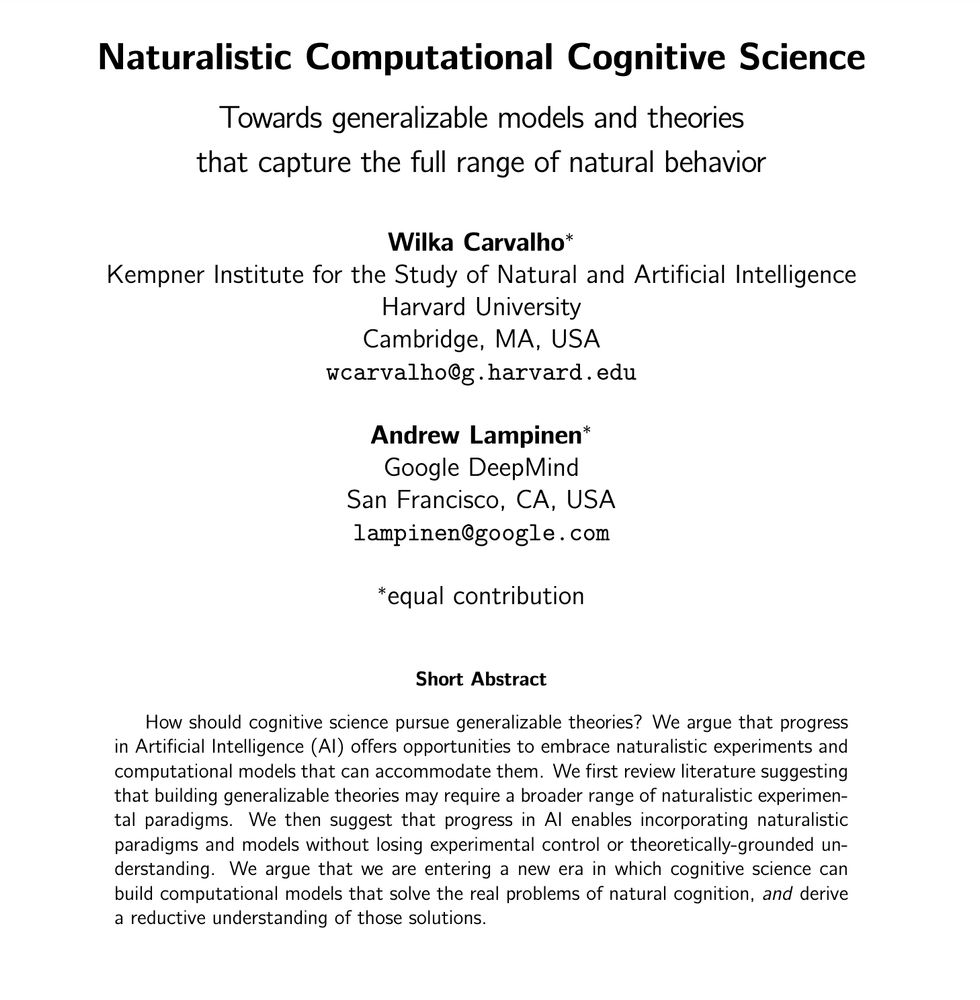
Excited to share this project specifying a research direction I think will be particularly fruitful for theory-driven cognitive science that aims to explain natural behavior!
We're calling this direction "Naturalistic Computational Cognitive Science"
16.06.2025 19:30 — 👍 99 🔁 22 💬 3 📌 2
Super kick-ass talk by @anna-beyeler.bsky.social on dopamine signalling and anxiety just now at the 12th SBDM (Symposium on the Biology of Decision Making)! 😱🤯🥳
16.06.2025 13:36 — 👍 8 🔁 2 💬 0 📌 1
Yaaay, congrats Alex! 🤩
14.06.2025 06:07 — 👍 1 🔁 0 💬 0 📌 0
Did their own hand feel rubbery?
#catchtrials
#demandcharacteristics
:-)
10.06.2025 11:46 — 👍 7 🔁 2 💬 0 📌 0
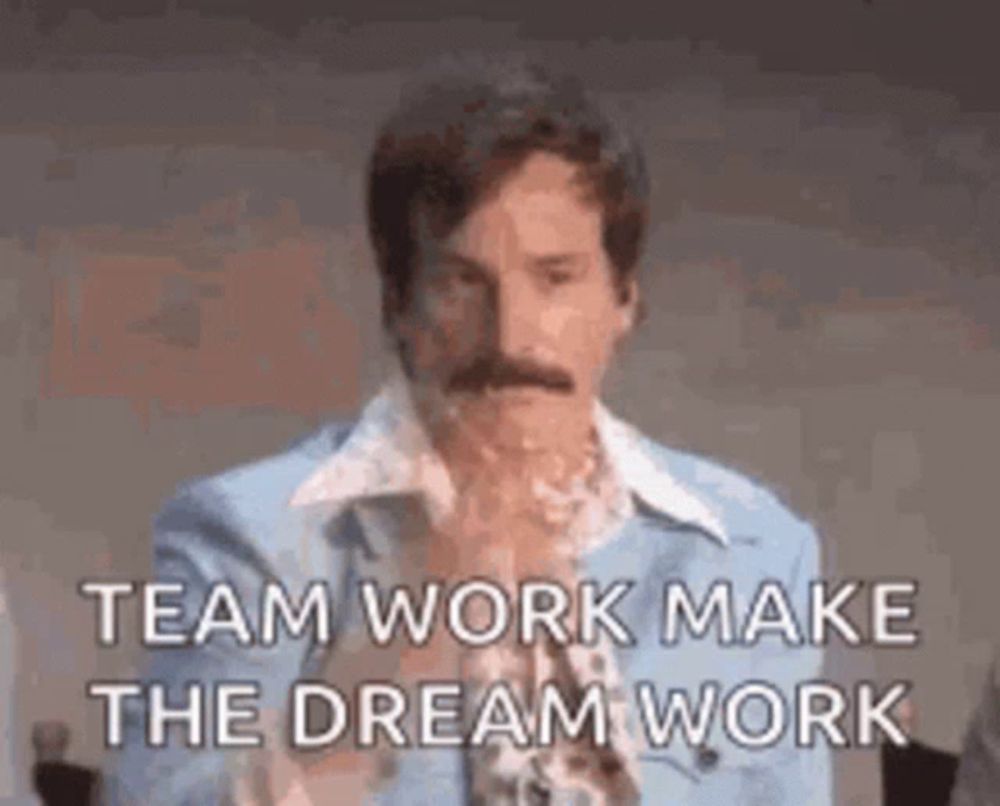
a man with a mustache is wearing a blue shirt and a blue jacket and says `` team work make the dream work '' .
ALT: a man with a mustache is wearing a blue shirt and a blue jacket and says `` team work make the dream work '' .
Shout-out to the kick-ass team that made this project such a joy: Model magician Alejandro Tlaie, video wizard @hummuscience.bsky.social , mouse & monkey whisperers Rob Taylor, Katharine Shapcott and PA Ferracci, VR maven Mina Glukhova and master of neurobehavioural math @jpillowtime.bsky.social .
10.06.2025 11:21 — 👍 3 🔁 0 💬 0 📌 0
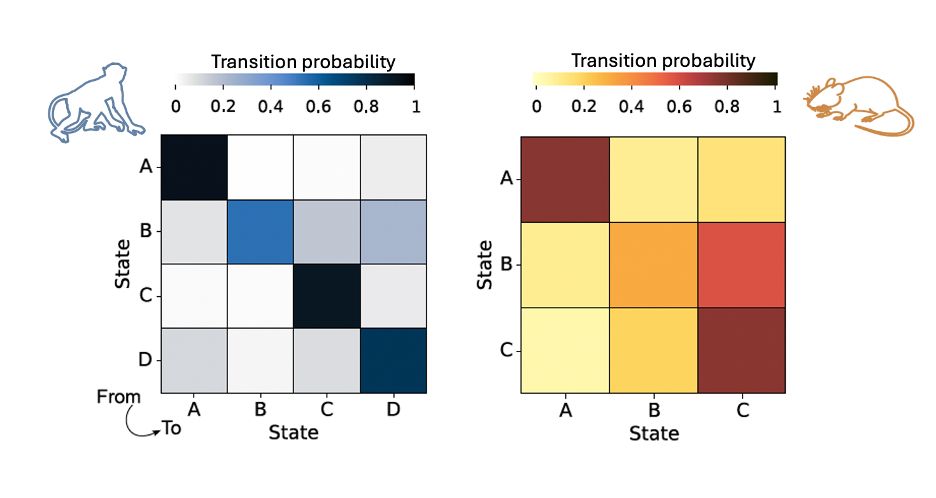
The one clear difference we found between species? Monkeys stick to each face state more consistently, while mice bounce around between states more often and more randomly. (6/7)
10.06.2025 11:21 — 👍 1 🔁 0 💬 1 📌 0
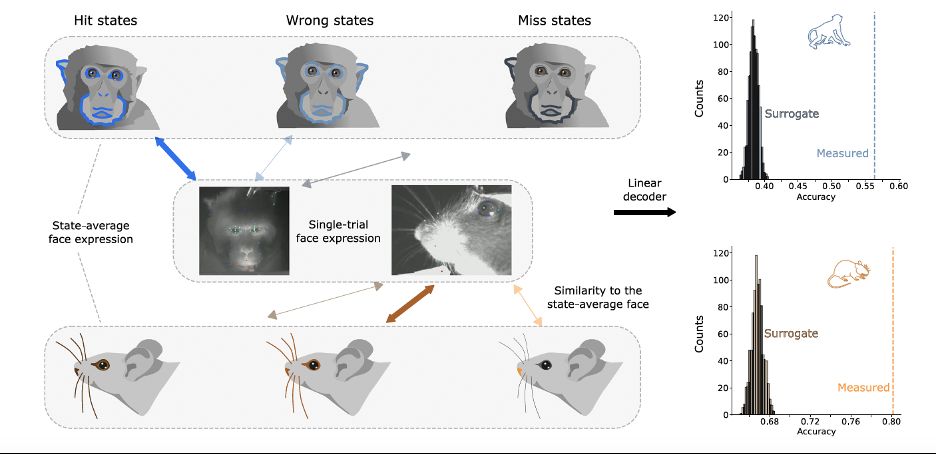
This relation held on a single-trial level: Just by looking at their faces, we could predict reliably if mice and monkeys were going to succeed in the upcoming trial - and how fast they would do so (5/7)
10.06.2025 11:21 — 👍 2 🔁 0 💬 1 📌 0
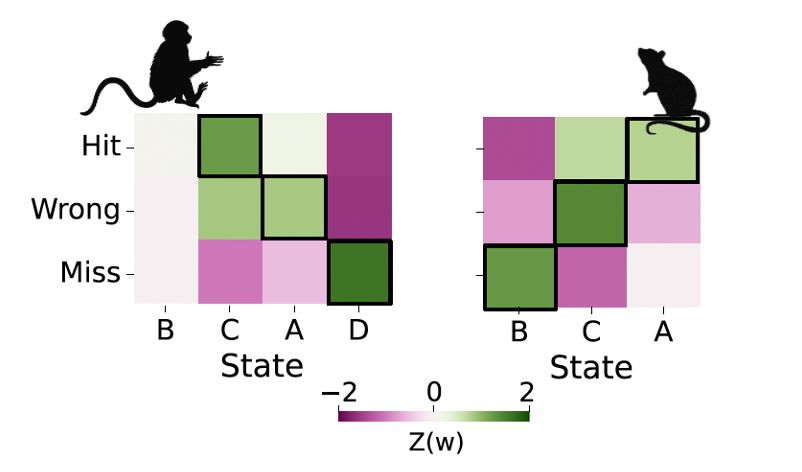
Over time, different facial features were most predictive, forming alternating ‘face states’. Amazingly, these face states mapped neatly onto trial success, even though the model didn’t know trial outcomes! In short: Facial expressions track cognitive performance states (4/7)
10.06.2025 11:21 — 👍 1 🔁 0 💬 1 📌 0
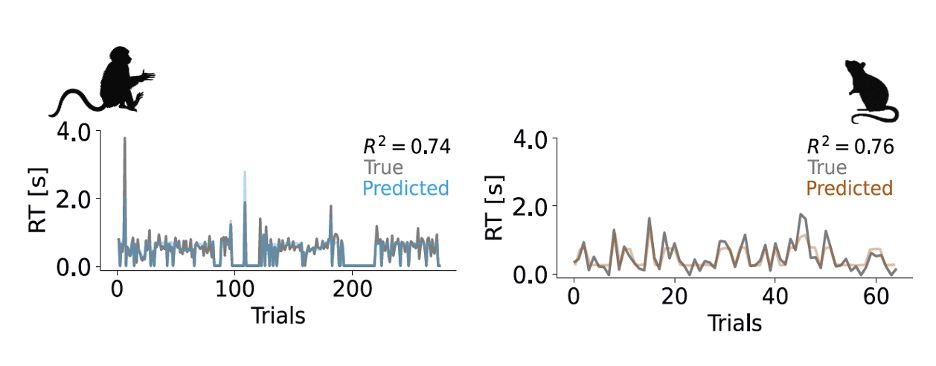
We then analysed their facial expressions pre-trial to predict their reaction speed per trial. First things first: it worked! Facial expressions predicted upcoming reaction times - in monkeys and in mice! (3/7)
10.06.2025 11:21 — 👍 1 🔁 0 💬 1 📌 0
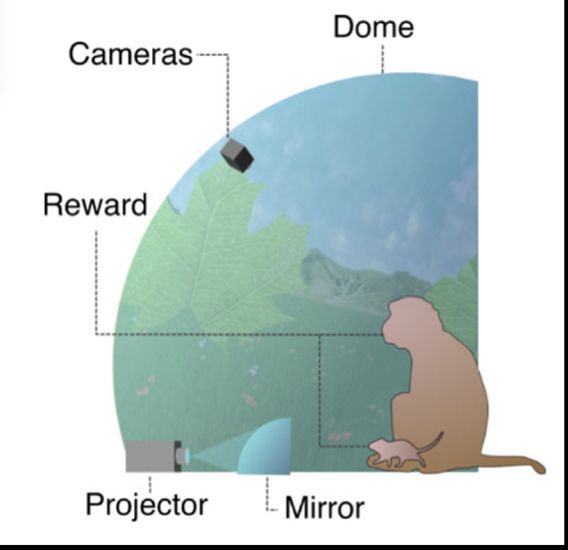
The way we process the world keeps spontaneously shifting - from focused, to daydreaming, to hasty, and so on. How do such spontaneous cognitive shifts operate across species? To find out, we let mice and monkeys play the same immersive VR foraging task. (2/7)
10.06.2025 11:21 — 👍 1 🔁 0 💬 1 📌 0
Eatsalotl and Eatsalitl
15.05.2025 01:36 — 👍 60 🔁 9 💬 2 📌 0
Ha, challenge accepted! 😂🙌
06.05.2025 08:06 — 👍 2 🔁 0 💬 0 📌 0
Neurobiologist interested in spatial cognition and navigation
Research director at INSERM
Team leader "Neuronal mechanisms of spatial cognition" at INMED in Marseille
Postdoc in Neuroscience. Massilia 🌞
Spatial navigation, head direction cells, naturalistic behavior in 🐒 and 🐀.
Neuroscience | Cognitive/Behavioral Flexibility | Neuromodulation |Anterior Cingulate Cortex | Postdoctoral Fellow at Rutgers University | he/him/his
Human Intracranial Cognitive Neuroscience & Neurology at Yale University, previously at the University of Tuebingen. www.helfrich-lab.com Views are by own.
🎓 clinical researcher @ Charité Universitätsmedizin Berlin
🛋️ licensed psychotherapist
🎠 wild ride through cognitive psychology, neurolinguistics, philosophy of language, psychoneuroendocrinology & psychopharmacology
Neuroscience & functional ultrasound imaging. Vision and brain states. Professor at University Medical Center Göttingen. https://brainwidenetworks.uni-goettingen.de/ Co-Spokesperson, EKFZ Center for Optogenetic Therapies. https://ekfz.uni-goettingen.de/en/
We're a neuroscience blog trying to make neuroscience accessible for everyone! Check it out here: https://neurofrontiers.blog
Neuroscience PhD candidate at the University of Pennsylvania and sci-comm enthusiast interested in brains 🧠 and models of them 💻.
Website: catrinahacker.com
PhD student in the Object Vision Group at CIMeC, University of Trento. Interested in neuroimaging and object perception. He/him 🏳️🌈
https://davidecortinovis-droid.github.io/
Writer, reader, human. Interested observer of all things AI/writing.
PhD student in philosophy of biology, researching memory, imagination and consciousness.
Also interested in teaching, sci-comm, pedagogy and dance.
Vanderbilt University School of Medicine
Dept of Molecular Physiology and Biophysics
Development of homeostatic neural systems
BRASS N GLASS
Hey !
I am a graduate student at CASCB & IMPRS-QBEE PhD. program in konstanz, Germany, working with Ahmed El Hady and Einat Couzin-Fuchs.
I am attempting to understand Locust and Mice social behaviour at the group level.
Husband, Father and grandfather, Datahound, Dog lover, Fan of Celtic music, Former NIGMS director, Former EiC of Science magazine, Stand Up for Science advisor, Pittsburgh, PA
NIH Dashboard: https://jeremymberg.github.io/jeremyberg.github.io/index.html
Scientist, Professor
Passionate advocate for responsible and humane research involving animals.
#ThankAMonkey #EndSufferingThruScience
Views are my own.
Postdoc at Ann Duan's lab, Sainsbury Wellcome Centre. Studying decision making.
Wellcome Early Career Fellow (UOxford)
Junior Research Fellow (Wolfson Ox)
Neurophys & Computation of Reward, Learning and Decision-making 🧠 🇹🇼🇬🇧
@oxexppsy.bsky.social @wellcometrust.bsky.social
@wolfsonoxford.bsky.social
excited neuroscientist, mouse trainer by profession, postdoc at @sainsburywellcome.bsky.social
Prof. @ucsantabarbara.bsky.social - Runs a lab slslab.org - Works on computation, neuroscience, behavior, vision, optics, imaging, 2p / multiphoton, optical computing, machine learning / AI - Blogs at labrigger.com - Founded @pacificoptica.bsky.social
Fish physiologist focused on the sense of smell. Associate Professor at Texas State University. #WomenInSTEM. Fish model and non-model fan. #zebrafish #goldfish #trout #bass #xiphophorus #catfish
Sometimes hiking and thinking of fish.

